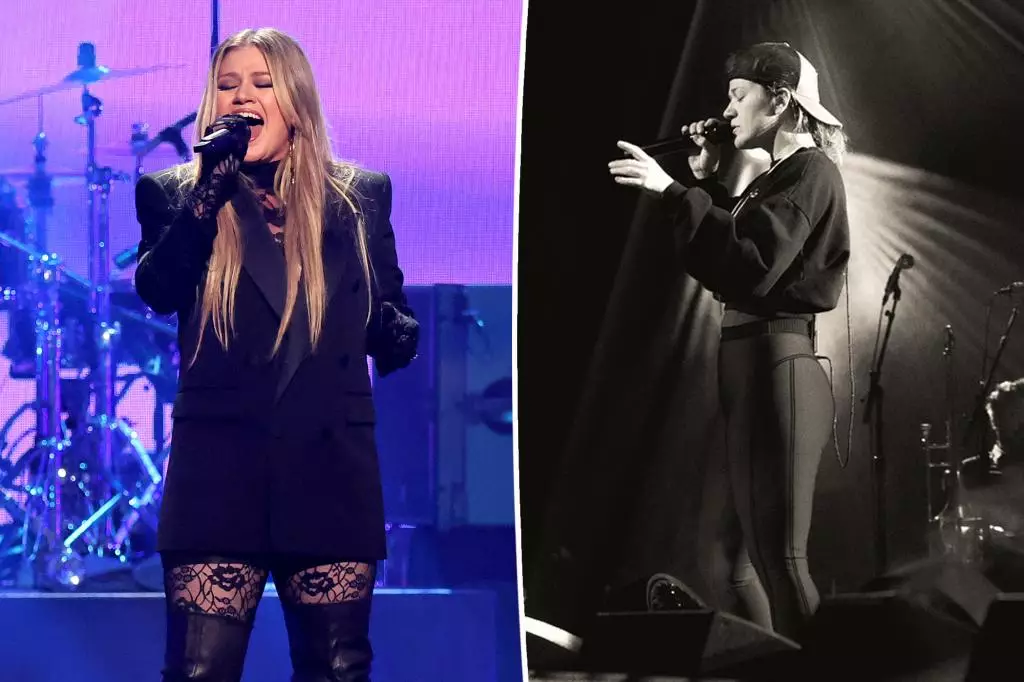In the world of live entertainment, spontaneity is both a gift and a gamble. When Kelly Clarkson abruptly canceled her Las Vegas residency opening night just moments before showtime, it ignited a wave of disappointment among fervent fans. Such last-minute cancellations, especially with minimal warning, often provoke a complex cocktail of emotions—anger, frustration, empathy—and highlight the stark difference between an artist’s aspirations and the brutal realities they face. While fans are entitled to their expectations of flawless performances, the underlying pressures on performers remain largely unseen.
Many patrons expressed their dismay openly, emphasizing the financial and emotional toll of last-minute changes. For those who traveled across states or even countries, such abrupt cancellations can mean lost time, money, and hope. The sentiment that celebrities should bear some responsibility for covering fans’ expenses in these situations resonates strongly; it reveals a longing for accountability in an industry that often appears detached from its audience. This is especially true in high-stakes environments like residencies, where many invest heavily upfront, counting on the experience to be unforgettable.
Yet, more than just dissatisfaction, there is a narrative of human vulnerability that emerges. Clarkson’s explanation—that her voice had taken a toll and that she needed to prioritize her health—shines a light on the ever-present battle between artistic ambition and physical well-being. For a performer, maintaining vocal health is not merely a matter of pride but survival, and capitulating to this necessity can sometimes clash with relentless expectations from fans and management alike.
The Cost of Perfection and the Unseen Strains of Fame
While fans’ grievances often center on the inconvenience caused by cancellations, they also reveal a deeper societal narrative about the expectations placed on celebrities. Clarkson’s heartfelt message—emphasizing her desire to deliver an extraordinary experience and her commitment to her craft—inspires admiration. Yet, it also exposes the immense pressure she faces to perform flawlessly despite the taxing nature of her schedule and health challenges.
The toll of such intense preparation, compounded by the physical and emotional strain of touring and rehearsals, cannot be overstated. Many performers push their voices and bodies beyond their limits, often masking discomfort with a smile for the sake of their fans. Clarkson’s decision to rest and recover, while disappointing in the short term, demonstrates a mature acknowledgment that health must come before perfection. It’s a reminder that even the most talented artists are vulnerable humans fighting against exhaustion and injury.
Moreover, the conversation extends beyond Clarkson herself to the broader industry. The notion that artists and their teams should have some form of insurance or guarantee against last-minute cancellations isn’t just practical—it’s a moral imperative. Artists need safeguards to protect themselves from the strain of relentless schedules, and fans deserve transparency when it’s apparent that health concerns are at play. In a sense, this situation underscores the need for a paradigm shift, where both artists’ welfare and audience expectations are balanced with integrity.
The Complexity of Artistic Identity in the Modern Era
Kelly Clarkson’s scenario exemplifies the modern artist’s complex identity—one that blends personal health and authenticity with commercial success and audience engagement. Her dual role as singer and talk show host further complicates her professional landscape. She’s a multi-faceted individual navigating a media environment that often demands constant visibility and performance. The rumors about her dealing with personal issues that might lead to stepping away from her show add layers to her current predicament, highlighting how personal struggles often intersect with professional obligations.
In an age where social media amplifies every decision, Clarkson’s candid communication about her health is both a relief and a testament to her authenticity. Fans are increasingly expecting transparency; they want to see their idols as real people, not just icons. This shift, while positive in fostering genuine connections, also intensifies pressure on performers to appear resilient at all times. Balancing authenticity with public expectations is one of the greatest challenges faced by celebrities today.
Contemporary performers are caught in the tension between maintaining their art and managing their mental and physical health. Clarkson’s choice to postpone her shows demonstrates a prioritization of long-term sustainability over immediate gratification. While some may criticize her for the inconvenience, it’s a stark reminder that behind the glamour, artists grapple with very human concerns. Ultimately, her situation sparks an important dialogue about the necessity of compassion—both from fans and industry professionals—towards those who dedicate their lives to entertainment.
—
